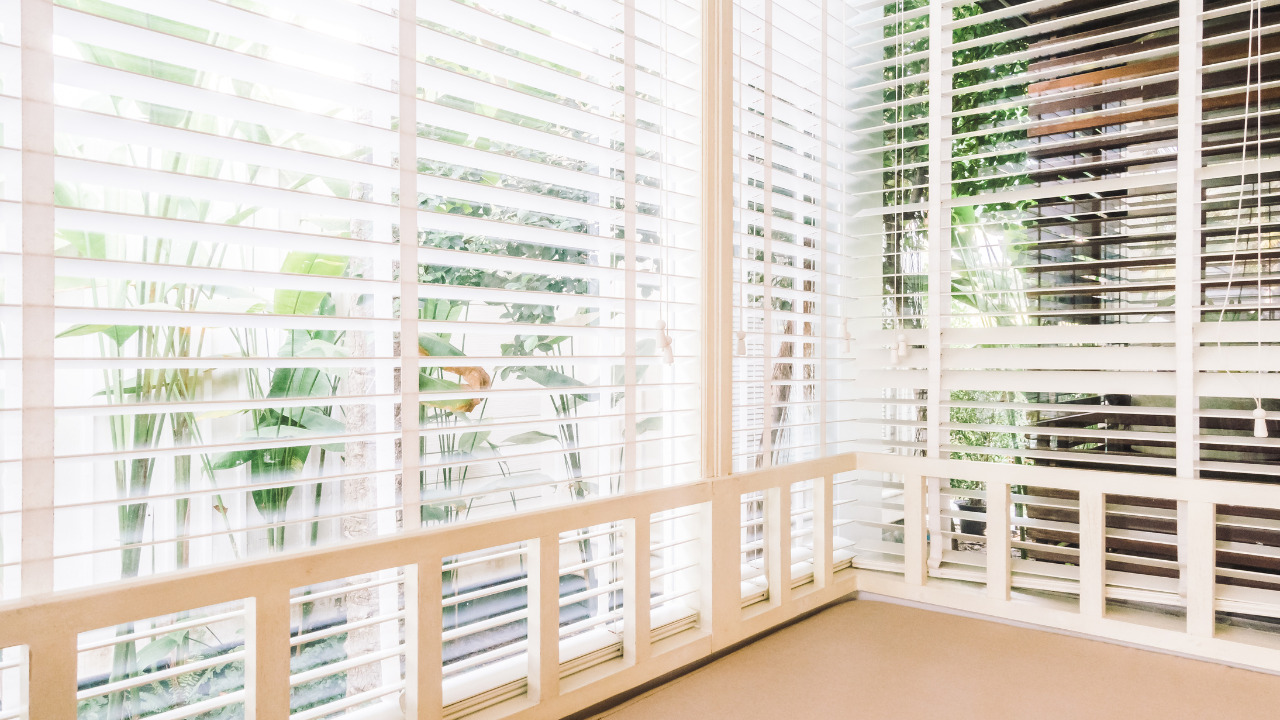Choosing the most suitable material for your outdoor blinds is one of the most important things to do before making a purchase. There are many different types of materials for you to choose from, so you must know what they are and how they work. This will help you determine the most suitable material for your needs and ensure that the blinds last a long time.
Here’s a guide to selecting the best material for your outdoor blinds:
Table of Contents
Research About The Most Common Materials
There are many different types of materials available for outdoor blinds. These include:
Wood Veneer
This option is an excellent choice for any room in your home. It adds a natural element to your space and can be painted, stained, or finished in any way you like. It’s also easy to maintain, so you won’t have to worry about spoiling or repainting every few years, as other materials might require.
However, wood veneer has a fair share of drawbacks. For instance, it can become damaged or warped if exposed to moisture and weather conditions over time. The same goes for cold climates with freezing temperatures as well as hot ones where there are high humidity levels present.
Aluminium
This alternative is another popular choice for outdoor blinds because it doesn’t crack or fade over time like other materials might do when exposed to the elements. Aluminium is also very lightweight and easy to install, making it great for do-it-yourself (DIY) home projects.
Unfortunately, this option is more expensive than others, but may be worth the investment if you want something that will last for years without showing signs of wear and tear.
Plastic
Plastic is another excellent option for outdoor blinds because it’s lightweight, easy to clean, and inexpensive compared with other options on the market today. Plastic does tend to get discoloured over time if exposed directly to sunlight for extended periods, which means it’s only suitable for some climates or regions.
Vinyl
Vinyl is one of the most popular options for people. It’s an affordable option that will last a long time if properly maintained. It’s also effortless to clean, which makes it great for homeowners with pets and children who may be prone to accidents.
However, this option does have some downsides. For example, vinyl can fade if not adequately cared for or left out in the sun for too long. It also doesn’t provide much insulation from the cold during winter months or heat during summer months.
PVC
Polyvinyl chloride is often used because it comes in many colours, including white, brown, blue, and black, which means you can match them perfectly with any colour scheme in mind.
PVC is also durable, so it won’t break easily even when exposed to extreme weather conditions like rain or substantial winds, so you don’t have to worry about replacing your blinds.
But you must remember that PVC can be expensive. So, if you want to save money, there are more suitable materials for your blinds. Also, it’s not very easy to clean because it can stain easily, and it tends to attract dust particles, which makes it look dirty all the time.
By understanding the advantages and drawbacks of each material, you’ll learn which is best for your outdoor blinds.
Consider The Factors
After knowing the most common types of materials for outdoor blinds, you have to look at other factors, which include the following:
Durability
Durability is one of the most important factors when choosing a material for your blinds. You want something that can withstand harsh elements such as rain, snow, and sunlight. The stronger the material, the longer it will last. In addition to being durable, it should also be easy to clean and maintain.
Light Transmission
Another important factor is light transmission. You want your blinds to protect you from harmful ultraviolet (UV) rays while allowing enough sunlight inside so that you can enjoy the view outside your home or office. However, if you live in a windy area or have wind chimes hanging on your windowsill, you need to consider how much light goes through the material because some materials block out a lot of sunlight.
Heat Retention
This factor depends on the material you choose for your outdoor blinds. Certain materials are more effective than others at keeping heat inside a room or house during cold seasons, while others are better at keeping excess heat away during warmer days.
Warranty
A good warranty is also one of the most important factors to consider because it shows how much confidence a manufacturer has in their product. If they offer a lifetime warranty, it means they know their product will last a long time.
Waterproof
You need to ensure that your blinds are waterproof to protect your home from water damage caused by rain or snow. Some materials like vinyl and aluminium are not waterproof, so you should avoid buying such materials if you live in an area with rainy weather most of the time.
Style
You should make your choice according to your preference and taste because this represents your personality. If you want something simple and elegant, choose wood or fabric blinds; if you want something colourful and vibrant, select aluminium. Or if you want something modern and sleek, choose vinyl or metal blinds.
Takeaway
When installing outdoor blinds, you must choose the most suitable material for your needs. Therefore, consider this guide in making your choice. Installing the best product possible can prevent costly and frequent repairs or replacements in the future.





